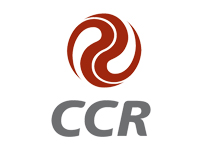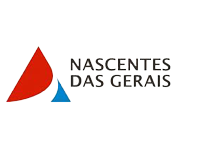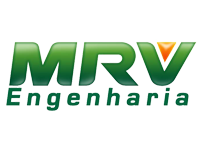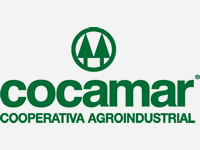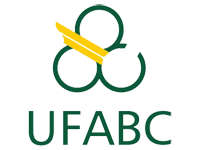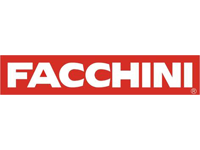Environmental Licensing
What is environmental licensing?
The environmental licensing is a prevention and supervision tool, established by the National Environmental Policy (Federal Law No. 6.938/1981), which consists of an administrative procedure by which the environmental agency legislates and approves the location, installation, expansion and operation of enterprises or activities that may generates any pollution or environmental degradation.
Who carries out the environmental licensing?
According to the resolution CONAMA nº237/1997, and other legislations, the ability to license relies on the agencies related to the National Environment System (Sistema Nacional do Meio Ambiente – SISNAMA), responsible for the protection and improvement of the environmental quality. Licensing can be competence of the federal, state or municipal agencies, depending on the criteria such as the location and impacts caused by the project.
If the environmental impact is national or regional level, when the direct influenced area is located in two or more states, the competence is of IBAMA. It is also of IBAMA competence when the impacts go beyond the national territory, extends in the territorial sea, continental shelf, economic zones, and indigenous lands or in protected area, or when they are related to radioactive materials, used for nuclear energy or military bases.
In general, the environmental licensing is responsibility of the state agency.
Relies to the states the licensing of any business located in more than one municipality or state conservation unit, located of developed in forests and other natural vegetation forms of permanent preservation or whose direct environmental impacts go beyond the territorial limits of one of more states.
The complementary law No. 140/2011 made clear the responsibility of the municipality to realize the licensing for enterprises that influences locally or affects any local protected areas.
Other agencies should be consulted during an environmental licensing, depending on each case. For example:
- The county agency, regarding land use and occupation;
- The water company, regarding the viability and supply of drinking water and sewage collection and treatment;
- Electric company, for power supply;
- IPHAN for possible impacts on historic, cultural, natural heritage and landscape;
- ICMBio and Protected Areas Agencies, regarding the possible impacts on biodiversity or protected areas;
- National Water Agency, Watershed Committee and other water managers agencies, regarding the grant of use for surface or underground water or effluent disposal;
- FUNAI, about possible impacts to native people or lands;
- Zumbi dos Palmares Foundation, regarding the Quilombola population, among others.
Who needs an environmental licensing?
Any enterprise or activity that causes, effective or potential, environmental impacts should be subject to environmental licensing.
According to the resolution CONAMA nº 237/1997, are examples of projects subject to environmental licensing: mining, industries, roads, railways, airports, dams, electric power transmission, water treatment plants, water treatment and sewage pumping, treatment and waste disposal, transportation, terminals, warehouses, tourist complex, land subdivision, industrial districts and farming.
This is a simplified list; other activities that cause similar impacts also require licensing. Each activity requirements depends on the specific regulations of the competent environmental agency. Is considered for criteria, potential polluter and environmental risk and the characteristic and nature of the activity.
A consultation with the environmental agency must be made to ensure that there is no doubts.
And if I don’t have the environmental licensing, what happens?
According to the Environmental Crimes Law (Federal Law No 9.605/98), build, renovate, expand, install or operate a business without a environmental license or authorization constitutes an environmental crime.
Besides liable to imprisonment and a fine, an inspection can determine the closing of the business, a fine that can range from R$50,00 to R$ 50,000,000.00, which can damage the Corporation image and interfere in any banking financing or contract with the Government.
Are Public Hearings mandatory?
During the licensing process, at the discretion of the environmental agency, a public hearing may be held, with the purpose of democratizing information, answer questions and collect any critic or suggestions regarding the business project and the environmental study.
What are the environmental licenses?
The environmental permit is the administrative act by which the environmental agency lays down the conditions, restriction and environmental control measures. As a rule, the environmental licensing is composed of three phases:
Previous license (LP) – Given in the planning phase, attests the environmental feasibility of the design and location of the enterprise, and determines conditions to be met in the next phase.
Installation license (LI) – Give the entrepreneur the right to build or install the project as specified in the approved plans, programs and projects, especially environmental control measures for the construction phase or deployment.
Operating license (LO) – Licenses the operation, after the verification of compliance with the requirements made in the previous licenses and environmental control measures and conditions. Granted the operating license, the entrepreneur is obliged to implement environmental control measures and other conditions, under condition of having the LO suspended or cancelled by the environmental agency.
Other licenses might be needed.
Renewal of operating license (RLO) – As the operating license is valid only for a period of one to four years, at least with 120 days in advance of the expiration of the license, the company should apply for the renewal of the operating license, when the competent agency checks whether the business continues to function in accordance with the constraints of the previous license and issue a new valid license.
Simplified license (LS) or Simplified Environmental License (LAS) – For residential or small business activities and low potential polluter, granted before the implementation of a project in a single phase, certifying the environmental viability, approving and authorizing the deployment and operation of a enterprise.
Exemption from State Environmental Licensing (DLAE) – When the licensing action does not compete to the State Environmental Agency, according to specific criteria’s, an exemption from state environmental licensing can be requested, if it is necessary to prove this situation. The DLAE does not exempt the enterprise from the environmental legal requirements.
Environmental recovery license (LAR) – Authorizes the recovery of contaminated areas located in closed enterprises, disabled, abandoned or degraded areas, in accordance with the technical and regulatory criteria.
Regularization operation license (LOR) – Grants authorization for the activity or project with environmental control measures for enterprises that were installed before the given timeframe, defined by the competent environmental agency, in general from the effective date defined by a Resolution that regulated the licensing in that agency.
There is also the possibility of simplified procedure for the environmental licensing, with the issuance of Preliminary License and Installation (LPI) or Installation and Operation License (LIO).
Environmental permit: issued for temporary activities, valid for the maximum period of one year. Is required an environmental authorization, for example, for the removal of native vegetation or soil movement, among others.
How Master Ambiental can help?
Master Ambiental has a multidisciplinary team able to protocol and administrate the environmental licensing of your business, and assist in compliance with the technical requirements of the environmental agency. Our goal is to make your business viable, minimizing environmental impacts, providing sustainable solutions for your business.
Contact us! We can answer your questions, ask for a quote!



